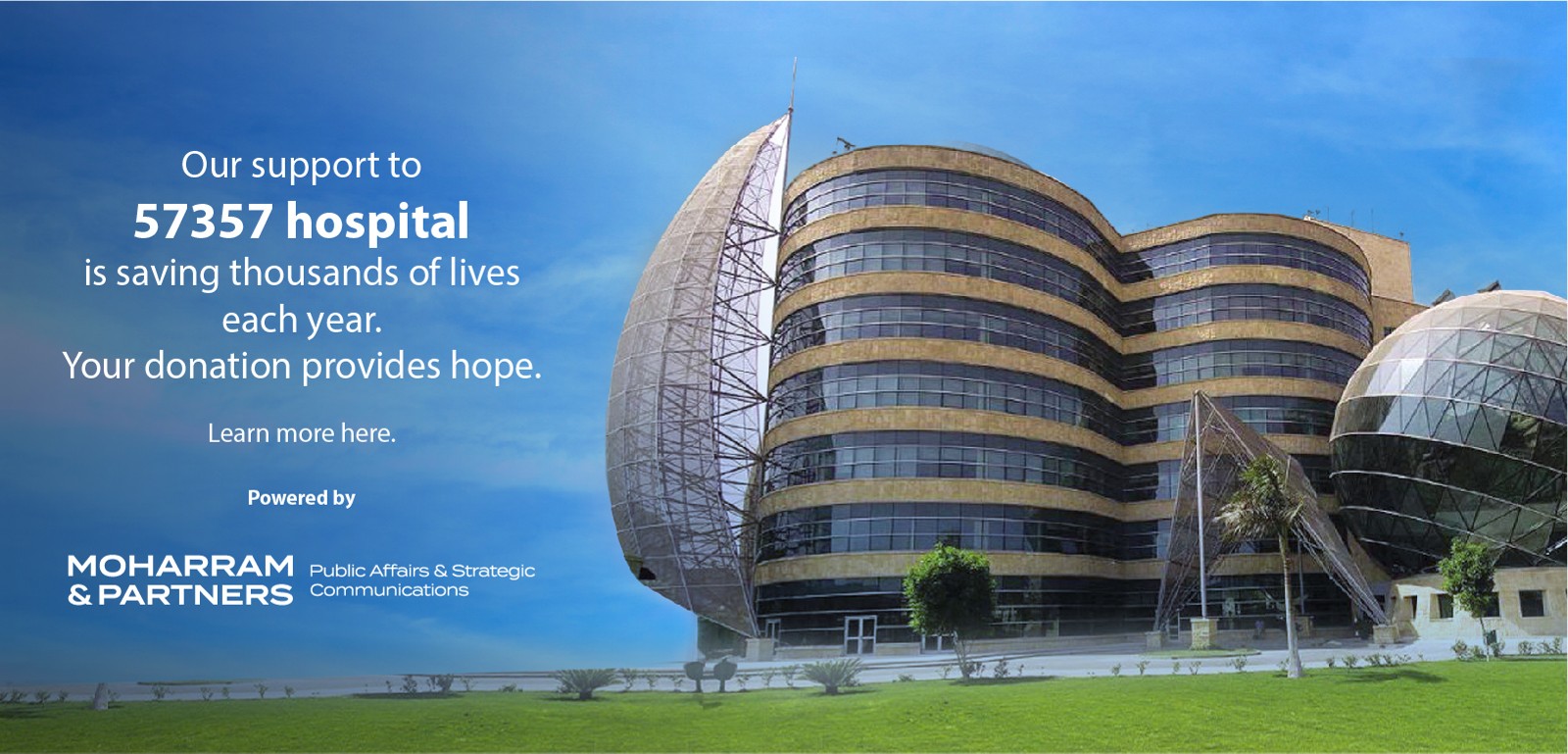- Teachers could need to get licensed to practice…. (Legislation Watch)
- …And social media platforms could need licenses to operate here. (Legislation Watch)
- Local mobile phone assemblers could be in line for a tax break. (Taxation)
- Misr Ins. wants to own all of Misr Healthcare. (M&A Watch)
- Heliopolis Housing scraps Heliopark co-development with Mountain View. (Real Estate)
- El Sisi defends national infrastructure spend amid economic challenges. (Last Night’s Talk Shows)
- The US Fed looks to be leaning towards a smaller rate hike next week. (Planet Finance)
- Egypt’s high-emissions industries are laying the groundwork ahead of the EU’s carbon tariff. (Going Green)

Tuesday, 24 January 2023
AM — Of tax incentives for smartphone assembly + regulation of teachers and social media platforms
TL;DR
WHAT WE’RE TRACKING TODAY

Good morning, folks, and happy Tuesday. For our Egypt-based readers, make it through the next two days and a three-day weekend awaits you.
PSA #1- Everyone agrees: This Thursday, 26 January, is a public holiday in observance of Police Day and the 25 January revolution, the EGX said in a statement, following announcements from the PM, the Manpower Ministry, and the central bank.
PSA #2- Your long-weekend weather will be gorgeous. Our favorite weather app shows highs of 24-27°C in the capital city Thursday through Saturday before a cold front settles in over much of the country next week.
Make the most of the holiday: Our next day off won’t be until mid-April, when we observe Coptic Easter and Sham El Nessim.
THE BIG STORY here at home: It’s a regulation and taxation kind of day. Teachers could need licenses to practice and social media firms licenses to operate, under separate bills being drafted by the Education Ministry and the Supreme Council for Media Regulation. Meanwhile, local mobile phone assemblers could see a 5% fee on imported parts and components scrapped as government works to boost the localization of the industry.
MEANWHILE- There’s no single story driving the narrative in the global business press, though there’s plenty of head-scratching over what the mood should be in tech ahead of earnings reports today from major US firms including Microsoft and Tesla.
FOR BULLS:
- Tech firms led a rally in US equities yesterday as investors wagered on slower rate hikes from the Fed amid cooler inflation data. The tech-heavy Nasdaq was the darling of the day, rising some 2%. (Wall Street Journal)
- Microsoft said it has a made “multiyear, multi-bn USD investment” in ChatGPT maker: The tech giant confirmed its investment after reports that it was considering investing as much as USD 10 bn in the AI company. (CNBC | statement)
(FOOD FOR THOUGHT- ChatGPT can just about pass all three exams for which would-be MDs need to sit in the US of A to obtain their licenses to practice. It “demonstrated a high level of concordance and insight in its explanations,” researchers write in a preprint of an upcoming paper (teaser here and full paper here, pdf).)
AND FOR BEARS:
- Tech layoff contagion catches up with Spotify: The music streaming giant is planning to lay off 6% of its workforce, or some 600 employees, joining a host of tech companies — such as Amazon, Microsoft, and Google parent Alphabet — in a wave of industry jobs cuts. (Bloomberg)
CLOSER TO HOME-
Erdogan is livid with the Swedes: Sweden’s NATO bid was cast into fresh jeopardy after Turkish President Recep Tayyip Erdogan said the country “will not see any support from us on the NATO issue,” Bloomberg reports. Never a fan of the recent Swedish and Finnish bids to join the security alliance, Erdogan’s sentiments have hardened after far-right protesters burned a copy of the Quran in Stockholm at the weekend.
Iraq’s central bank chief is out, sacked by the PM following a difficult few weeks for the currency, which has fallen almost 7% against the USD since November, the Associated Press reports.
HAPPENING TODAY-
El Sisi heads to India: President Abdel Fattah El Sisi will lead a delegation including ministers and other officials on a three-day visit from today at the invitation of Indian Prime Minister Narendra Modi. El Sisi will be honored as “chief guest” at celebrations to mark the country’s 74th Republic Day.
The national handball team broke its streak last night, losing 25-30 to Denmark in the final group-stage game of the International Handball Federation’s 2023 World Men’s Championship. Denmark secured its place in the quarter finals on the victory. It shouldn’t sting too much: Egypt is already through to the next stage.
The national team faces hosts Sweden in Stockholm for the quarter-finals on Wednesday, with the time still to be set.
COME TO OUR NEXT ENTERPRISE FORUM-

We’re excited to unveil our next C-level event: The Enterprise FDI + Exports Forum, where we will take a deep dive into two of the most critical topics affecting our community.
Exports and foreign direct investment (FDI) have never been more important to our economy — or our businesses — than in the wake of the float of the EGP. We think we have a once-in-a-lifetime chance to build an export-led economy that makes us a magnet for FDI and all the benefits that will come with it for our nation.
The Enterprise FDI + Exports Forum asks a simple question: Where do we go from here?
The Enterprise FDI + Exports Forum is the latest in our series of must-attend, invitation-only gatherings for C-suite-level business leaders, where they can talk openly and honestly about important issues in key parts of the economy. The gathering, which will take place in May 2023, will focus on how to start making moves across continents, including:
- What do we have to sell to global markets, including products and services? What should our priority industries be?
- How can you break into an export market? How can you make your business a component of the global supply chain? Hear directly from potential partners and buyers about what they’re looking for.
- How to leverage big domestic trends — and turn them into massive windows for export.
- How to climb the value-add ladder in a way that matches up with trends in key export markets.
- How do you choose an export market? What countries should Egyptian businesses be looking at as export targets — and why?
- What are foreign investors looking for? How can you pitch them on a JV — or on investing in your business?
Think of the Enterprise FDI + Exports Forum as a hands-on lab for how to turn the float of the EGP into something that will turbocharge your company.
COMING IN MAY — stay tuned for updates.
Want to partner with us on the conference? Ping a note to Moustafa Taalab, our head of commercial, here.
|
CIRCLE YOUR CALENDAR-
EBRD + EU + GCF green finance event next week: The European Bank for Reconstruction and Development, the EU, the Green Economic Financing Facility, and the Green Climate Fund will hold a green finance event on Tuesday, 31 January at the Nile Ritz Carlton Hotel. Check out the agenda here (pdf).
The Senate is set to reconvene on Sunday, 5 February, having yesterday completed two days of plenary sessions that saw members discuss tourism promotion and education reform.
Check out our full calendar on the web for a comprehensive listing of upcoming news events, national holidays and news triggers.
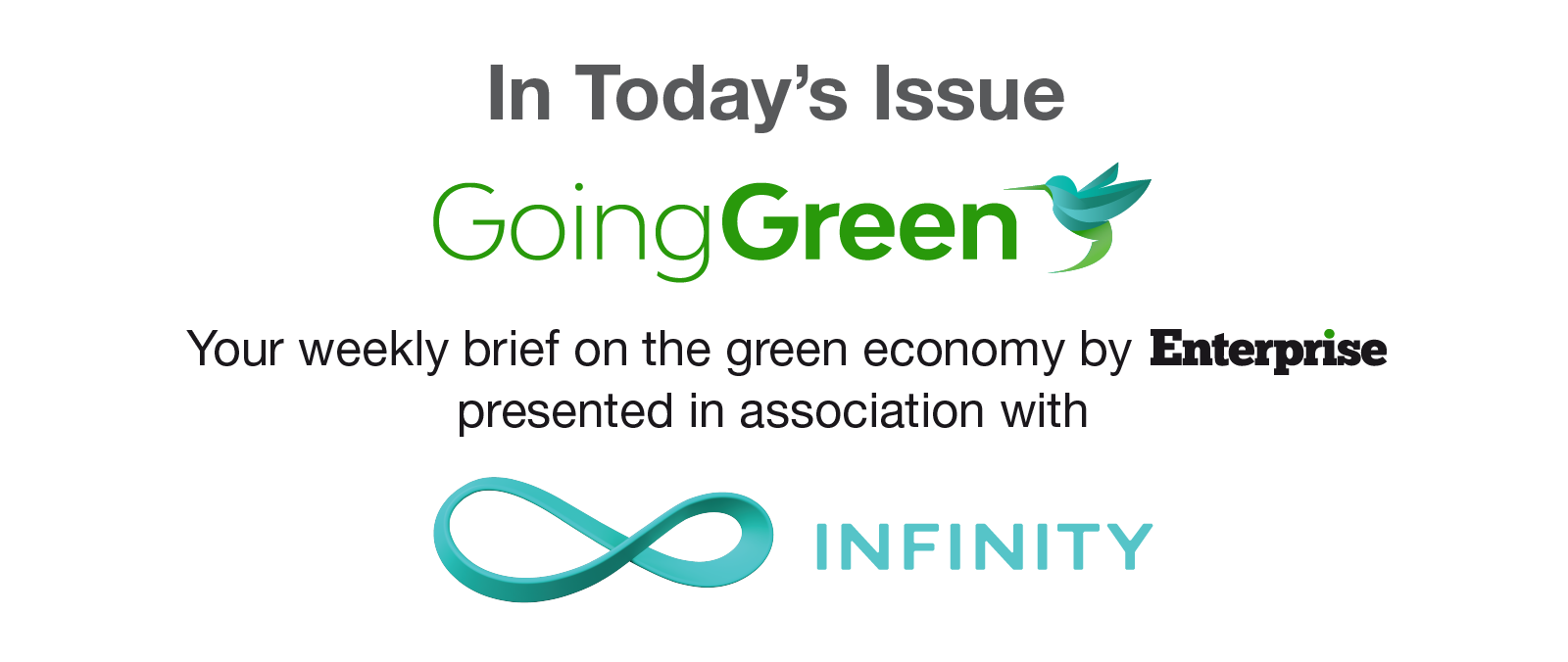
*** It’s Going Green day — your weekly briefing of all things green in Egypt: Enterprise’s green economy vertical focuses each Tuesday on the business of renewable energy and sustainable practices in Egypt, everything from solar and wind energy through to water, waste management, sustainable building practices and how you can make your business greener, whatever the sector.
In today’s issue: How will the EU’s incoming carbon border tariff impact Egypt’s high-emissions export industries?
Somabay brings out the best in majestic natural elements where raw beauty and endless activities reign supreme. Immerse yourself into a picturesque getaway all year long. This is simply Somabay. For more information, call 16390 or visit www.somabay.com.
LEGISLATION WATCH
Teachers could need to get licensed soon — and so could social media firms

Who’s teaching the kids — schools, private tutors, or TikTok? Education Minister Reda Hegazy yesterday told the Senate teachers may need to apply for licenses as part of reforms meant to improve public schools and curb private tutoring, a day after the country’s media regulator told the chamber it’s looking into new legislation meant to protect children in particular from harm caused by social media platforms.
A license to teach: The Education Ministry is drafting legislation that, if passed, would require teachers to obtain licenses to practice, Education Minister Reda Hegazy told Senators yesterday. Any penalties for teaching without a license would involve fines only and not jail terms, he added. The draft bill will soon be sent to the House of Representatives for discussion and a vote.
Wait, teachers aren’t licensed? There are currently no standard qualification requirements to work as a teacher in either public or private schools, with teacher training seen as primarily within the purview of academia. Hegazy last year suggested private tutors could be forced to get licensed; he later walked back the proposal amid a backlash from those who said it would only exacerbate the problem of tutoring replacing schooling.
Private tutoring is public (education) enemy no.1: Private tutoring is the biggest challenge to the education system, Hegazy said, followed by “a shortage of teachers and school buildings, crowded classrooms and stacked curricula.” He implied that low school attendance figures are the result of students skipping classes in their final years of primary and secondary education in favor of tutoring, saying that attendance in all other grades stands at almost 90%.
Tutoring costs Egyptian families EGP 66 bn a year, senators claimed, saying that an average family spends EGP 15-25k annually. The government’s per-child spend on public education, meanwhile, is EGP 12-13k — “and in spite of this students prefer to go to a private tutoring center,” said Rep. Hossam El Khouli.
And none of that is taxed: Rep. Nabil Dibis called on the government to impose a 10% income tax on teachers who provide private tutoring, with the proceeds to be spent on improving public schools. Last year, the Tax Authority demanded that tutoring center owners start paying taxes, though the industry remains part of the informal economy and isn’t governed by legislation.
AND- Good news if you’re in grade four or five: The school curriculum for fourth and fifth graders will be cut down in the upcoming semester, Hegazy said.“We don’t want students to be lost in a maze of school subjects.”
LICENSING SOCIAL MEDIA PLATFORMS?
Social media platforms will be required to apply for a license to operate in Egypt under draft legislation being drawn up by the country’s media regulator, Ahram Online reports. “The objective of this legislation is to stand up to the destructive ideas which these platforms disseminate,” said Karam Gabr, head of the Supreme Council for Media Regulation (SCMR), Gabr told the Senate’s Education Committee on Sunday. Gabr didn’t elaborate on how the legislation would be implemented or provide details of the bill.
It was a matter of time: MPs have called in recent years for more state controls on social media in the wake of the arrests of several popular TikTok influencers on content shared on the platform. TikTok was also in the firing line after a viral Throw Your Friend challenge in late 2022 led to a near paralysis of a 15-year-old student at a school in the country, while the Education Ministry warned parents last year of another viral “blackout challenge” on TikTok convincing users to choke themselves until they faint.
This is not the first time that the SCMR has attempted to regulate the industry. In September, the SCMR issued new regulations and licenses for online streaming platforms that require them to ensure their content “adhere to social values and morals.” It also required the platforms, including Netflix and Disney+, to “take the necessary measures” regarding content that goes against these regulations, without providing further details.
TAXATION
Local mobile manufacturers could soon catch a tax break

Fresh tax incentives for local mobile phone assemblers? The Finance Ministry is considering cutting a 5% development fee on imported mobile phone parts as the Madbouly government pushes to localize electronics assembly, a source at the ministry tells Enterprise.
The problem? The taxman rings twice (or more) on locally assembled phones. Fully assembled mobile phones, parts, and components alike are subject to a 5% development fee, part of a set of fees on imports that the government brought in to help plug the fiscal deficit amid the pandemic. That means that local handset assemblers pay 5% on imported parts in addition to another 5% once the handsets are put together — on top of VAT, customs duties, and other taxes. FinMin is now looking at scrapping the 5% fee on imported parts.
The local mobile manufacturing industry is still really young, but interest is rising: Egyptian electronics firm Sico Egypt is currently our only local smartphone assembler — but that’s now changing after firms including China’s Oppo and Vivo as well as HMD Global (which manufactures Nokia phones) have set plans in motion to enter the market. The government has been working to attract new players to the sector for several years under its Egypt Makes Electronics initiative, which is designed to cut down on Egypt’s imports of electronic products and increase our exports.
And import woes make now a good time to double down: The local smartphone market saw “severe disruption” last year on the back of a government move to double tariffs on imported phones to 10% as well as slowdown in imports thanks to the FX crunch, according to market intelligence firm International Data Corporation (IDC). Local smartphone sales dropped 73% y-o-y to 800k units in 3Q 2022, IDC writes. Sales are projected to rebound this year “as the local assembly initiative gains momentum and the government eases restrictions,” it adds.
M&A WATCH
Misr Ins. could soon become Misr Healthcare’s sole shareholder

Misr Ins. wants all of Misr Healthcare: Misr Ins. Holding is in talks to acquire a 20% stake in third-party claims management outfit Misr Healthcare Network held by the UAE’s Global Capital Investments, sources with first-hand knowledge of the matter told Enterprise yesterday. The acquisition will make Misr Ins. Holding the sole shareholder in Misr Healthcare.
Misr Ins. recently became a majority shareholder in Misr Healthcare: Misr Ins. Holding subsidiaries Misr Ins. and Misr Life Ins. acquired American Global Benefit Group’s 40% stake in Misr Healthcare last summer for EGP 5 mn, the sources said. The acquisition pushed Misr Ins.’ stake in the company from 40% to 80%.
The fluctuating EGP is proving to be an obstacle: Recent exchange rate volatility triggered by the central bank’s move towards flexibility against the USD has made it difficult to wrap up the transaction, our sources said.
We were expecting the acquisition to be finalized in the first week of January. Former company chairman Basel El Hini previously told Enterprise that Misr Ins. Holding was hoping to close the acquisition of an unnamed healthcare third-party administrator before early January.
About Misr Healthcare: Misr Healthcare helps streamline admin processes and cut expenses and costs at companies including Misr Ins., Misr Life Ins., and Delta Ins. The company currently serves over 70k clients, collecting EGP 700 mn in ins. premiums each year.
REAL ESTATE
Heliopolis Housing is putting its Heliopark project back out to tender

Mountain View is no longer on board to co-develop Heliopark: Heliopolis Housing has scrapped plans to co-develop its Heliopark project in New Cairo with Mountain View, saying in a statement that “current economic conditions and the remarkable rise in land valuations witnessed by the real estate market” in recent months meant it would no longer be accepting Mountain View’s offer.
The Mountain View offer: Heliopolis Housing’s board a year ago chose Mountain View in a tender to find a partner for the project, rejecting bids both a major national company as well as a regional outfit, according to a media report. Mountain View had been set to invest some EGP 1.4 bn in exchange for an undisclosed share in the revenues of Heliopark over a 23-25 year period, which Heliopolis Housing at the time estimated (pdf) could total some EGP 397 bn. Heliopolis Housing was set to receive 30% of the project’s revenues.
What changed? Mountain View may have been outshone by Gulf suitors and their hard currency. The state-owned parent of Heliopolis Housing is in talks with Gulf investors on a potential “partnership” that could reportedly involve an investment in Heliopark, as well as purchases of state-owned land and assets. Having already poured USD bns in deposits and FDI into our economy last year amid the fallout of war in Ukraine, Gulf countries are also expected to be key buyers for a revamped state privatization push that is partly aimed at bringing in more hard currency amid the FX crunch.
But Mountain View isn’t giving up so easy: The company will bid for the project again if Heliopolis Housing reissues its tender, the media report suggests.
Market reax: Heliopolis Housing’s share price rose 2.6% to close at EGP 11.50 on yesterday’s news.
SOUND SMART- Companies are reconsidering pricing on (and funding for) infrastructure, real estate and other large-scale projects in the wake of the float of the EGP — and the high land prices charged by the government will only make things more complicated. While this is the first time we’ve seen a finished tender canceled on the back of the float, planned tenders for the Tenth of Ramadan dry port and a 20-MW solar plant in Hurghada have both been postponed to give bidders a chance to revise their figures.
LAST NIGHT’S TALK SHOWS
Pundits parse El Sisi’s Police Day speech on the economy
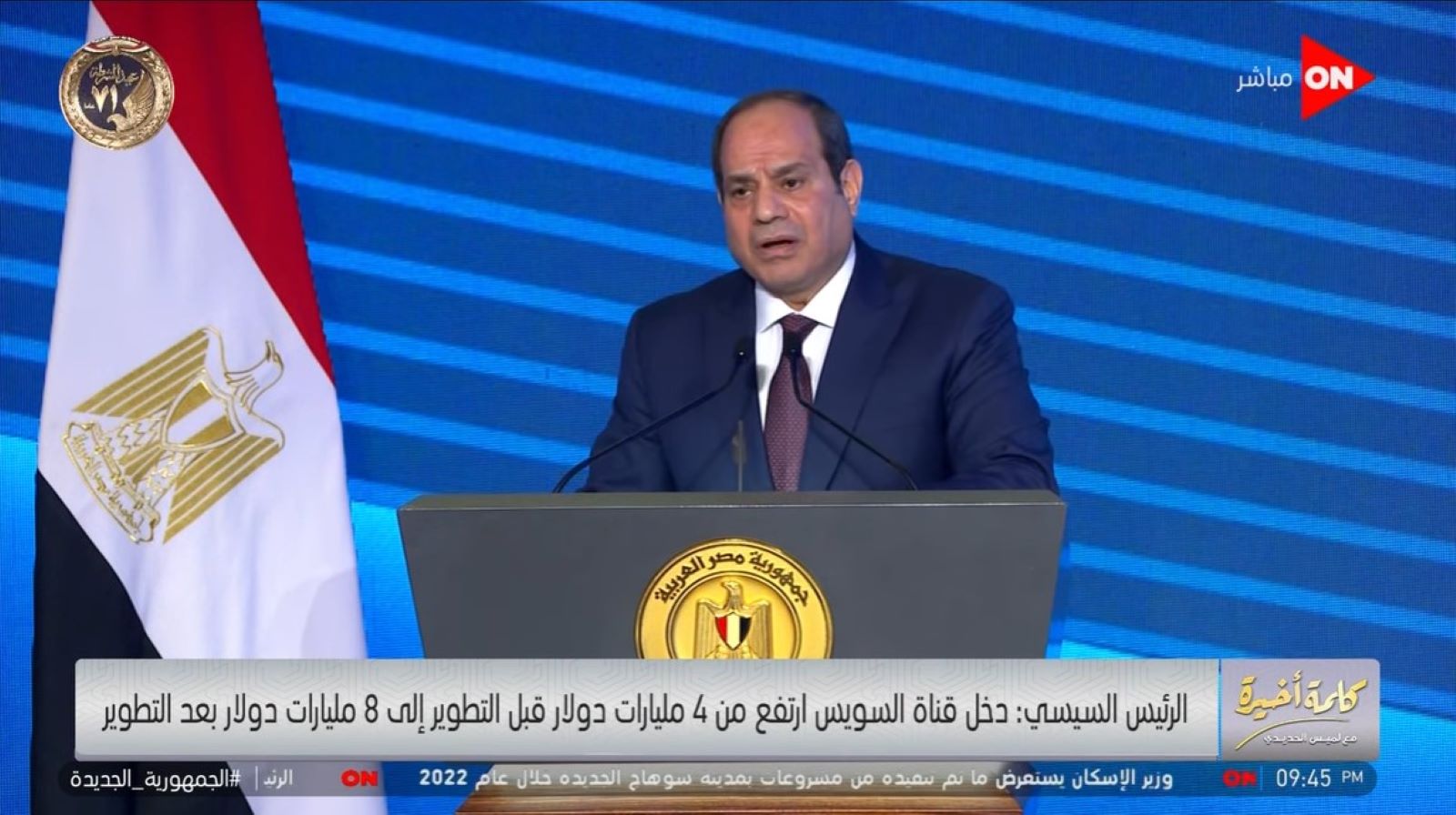
The state of the economy — and what got us here — once again got top billing on the airwaves last night, as the talking heads parsed a speech by President Abdel Fattah El Sisi yesterday during an event to mark Police Day.
El Sisi defends infrastructure spending: El Sisi cast as “misleading” claims that spending on national development projects was to blame for the economic challenges Egypt has recently seen, saying that investment to develop transport and energy infrastructure and assets including the Suez Canal are a key priority and will bring greater returns. Kelma Akheera had coverage (watch, runtime: 4:32).
And reminds us that Egypt isn’t the only country suffering: El Sisi reiterated that the pandemic and the war in Ukraine spelled economic crisis for countries around the world and not just Egypt, note Masaa DMC (watch, runtime, 3:03) and Al Hayah Al Youm (watch, runtime: 5:37.) His administration was tasked with “bearing most of the impact and not passing on the burdens to citizens, especially low-income earners and vulnerable groups,” he added.
UPDATE– A new scheme allowing everyone to buy subsidized bread has not yet gone into effect, Abdallah Ghorab, head of the bakery division at the Egyptian Federation of Chambers of Commerce told El Hekaya’s Amr Adeeb (watch, runtime: 6:47.) Supply Minister Ali El Moselhy had been quoted as saying the scheme would go into effect last Wednesday.
What’s the hold-up? The bread scheme could launch next week once the Supply Ministry settles on the price per loaf, Ghorab said, adding that he expected it would be around EGP 0.75-0.80. Assistant Supply Minister Ibrahim Ashmawy last week said the bread would sell at EGP 0.90 per loaf for slightly higher.
AND- Decreasing our dependence on the greenback: Less than 10% of our total external trade needs to be conducted using the USD, Ahmed Sheiha, a member of the exporters division at the Egyptian Federation of Chambers of Commerce (FEDCOC), told Ala Mas’ouleety’s Ahmed Moussa (watch, runtime: 3:23.) Sheiha welcomed the Bank of Russia’s recent move to allow the EGP as a currency of trade, saying we should strike up similar agreements with other countries.
EGYPT IN THE NEWS
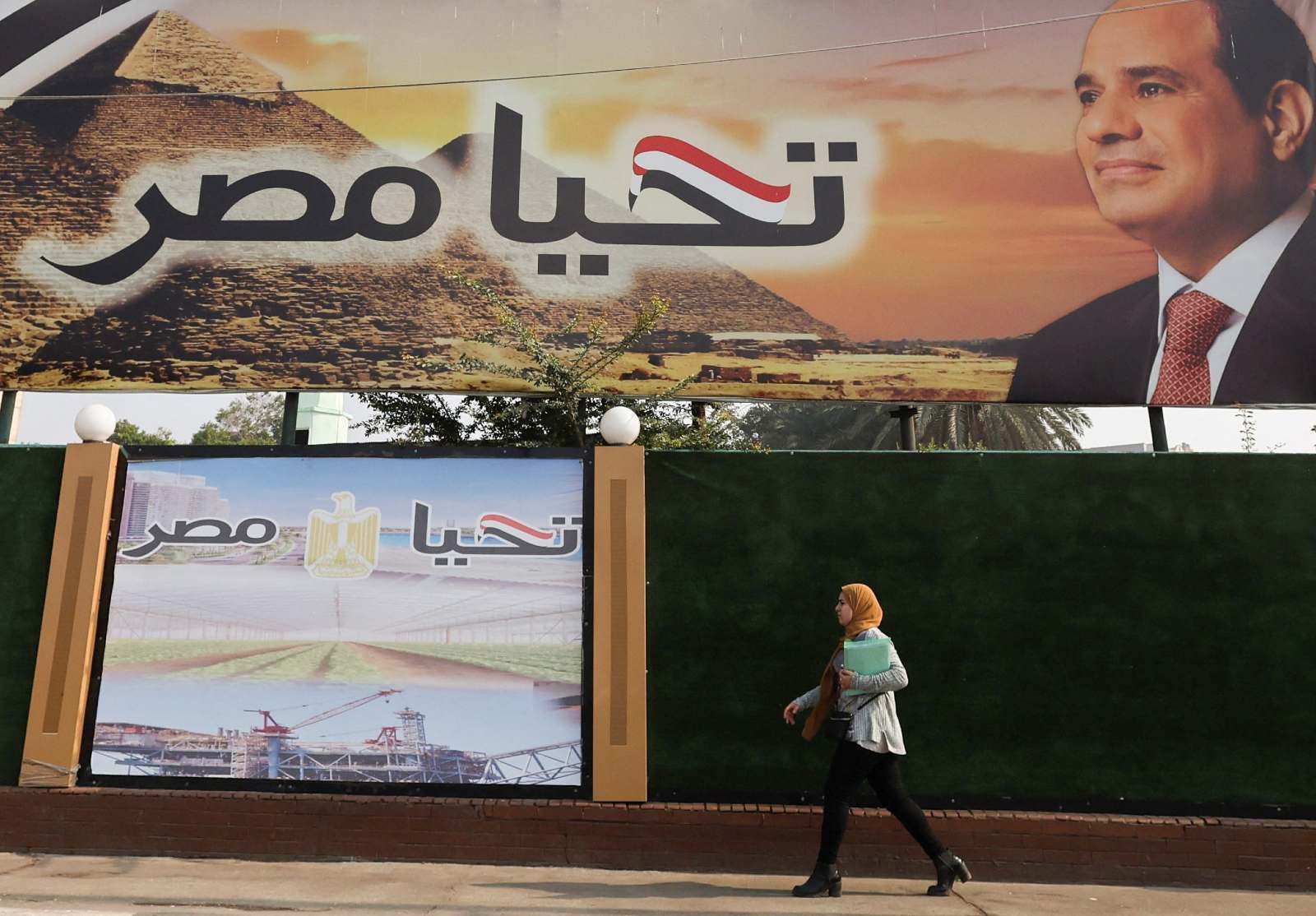
It was a busier day for Egypt in the international press yesterday, with the spotlight still firmly fixed on our economy.
Pondering privatization plans: In an op-ed for the Financial Times, Yezid Sayigh, senior fellow at the Malcolm H Kerr Carnegie Middle East Center in Beirut, praises plans to reduce military involvement in the economy as per our agreement with the IMF — but wonders whether we will follow through. The FT’s editorial board was out with a similar piece last week, as was the Independent’s international correspondent (and former FT correspondent in Cairo) Borzou Daragahi.
MEANWHILE- Deutsche Welle asks if the economic situation makes Egypt “the new Lebanon” and the New York Times puts the spotlight on inflationary pressures.
Also making headlines:
- Madagascar 2.0: The BBC looks into what will happen to the Giza Zoo’s many animals as it undergoes an EGP 1 bn renovation under the new, military-led management. (BBC)
- There’s a walk down Egyptian-Indian memory lane courtesy of the National ahead of President El Sisi’s visit to India for the country’s Republic Day celebrations.
- Local artist brings Egyptian culture to the UAE: Egyptian artist Sara Tantawy took over Dubai's Fann A Porter gallery with her Survivors exhibition, which depicts Egyptian women dancing. (The National)
ALSO ON OUR RADAR
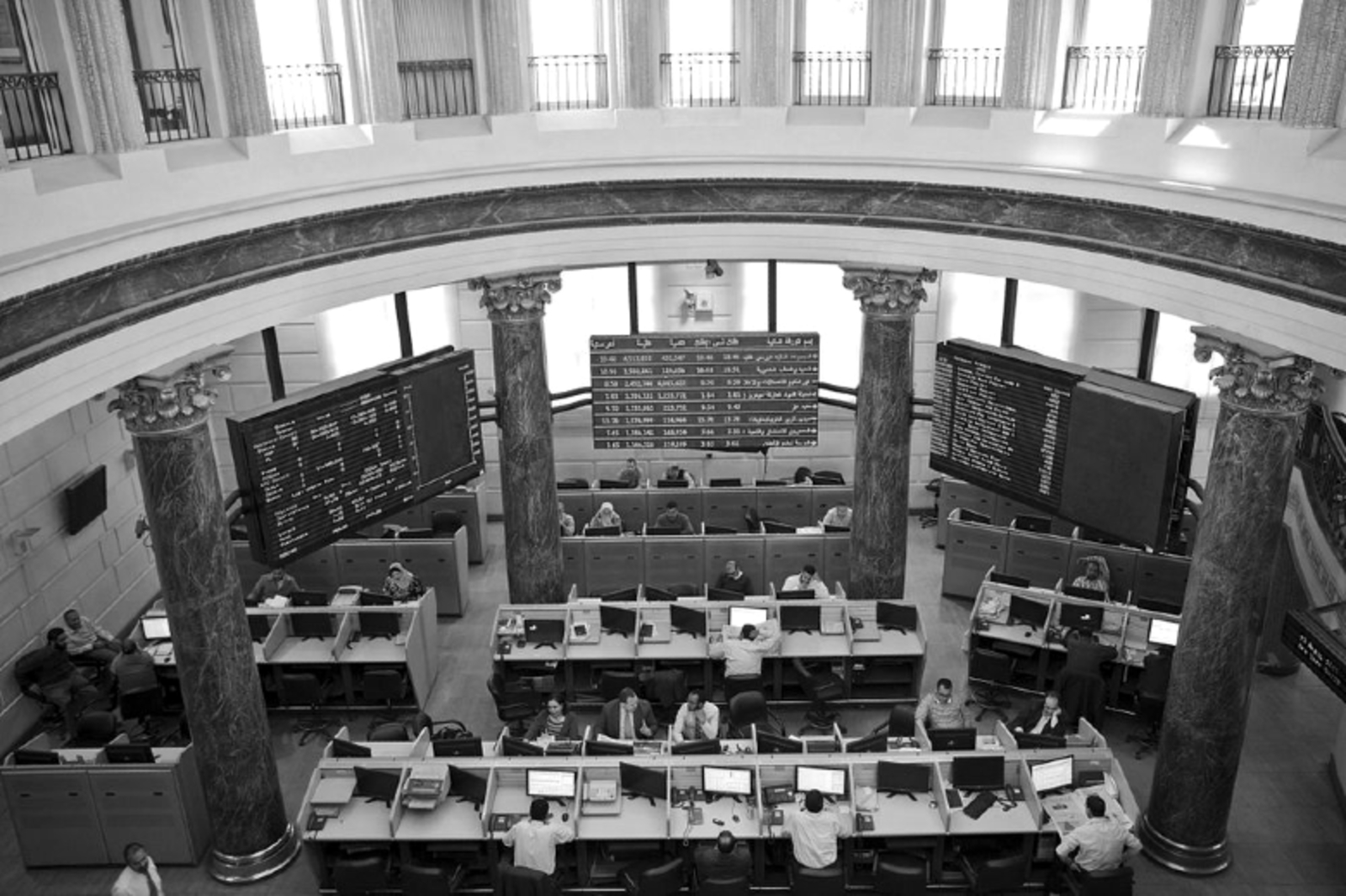
CAPITAL MARKETS-
CI Capital + Compass Capital plan EGP 2 bn equity fund: CI Capital and Compass Capital are launching a fund to invest in EGX-listed companies, with initial investments ranging between EGP 2-3 bn, unnamed sources reportedly told Asharq Business. The fund will be looking to acquire stakes of between 10-30% and is expected to launch later this quarter, the sources said. Representatives of CI Capital declined to comment on the matter when we reached out yesterday.
REAL ESTATE + DEBT-
SODIC inks EGP 2.75 bn credit facility with AAIB: SODIC subsidiary Al Yosr for Projects and Real Estate Development has secured an EGP 2.75 bn medium-term facility from the Arab African International Bank (AAIB) to help finance its upmarket The Estates project in West Cairo, it said in a statement (pdf) yesterday.
NUCA could get in on future flows: The New Urban Communities Authority (NUCA) could issue future flow securities to help fund its projects, Al Mal reported. NUCA’s securitization arm Al Taamir is looking into the size and the timeframe of any potential program, Al Taamir Managing Director Mazen Hassan told Enterprise.
FINTECH-
Team spirit in the BNPL sphere: EFG Hermes’ homegrown buy-now, pay-later company valU has partnered with Sympl to offer its customers access to Sympl’s 0%-interest three-month payment plans, according to a joint statement (pdf) out yesterday. Former valU execs Mohamed El Feky and Yasmine Henna are among Sympl’s co-founders.
NBFS collab: Contact Creditech — the consumer financing arm of Contact Financial — and JumiaPay have announced (pdf) a partnership that will see Contact offer payment and financing solutions to Jumia customers.
LAW-
Bar association ends strike after lawyers released: The Egyptian Bar Association has ended its strike after authorities released lawyers imprisoned in Marsa Matrouh last week, it said in a statement on Sunday. The association announced an indefinite strike last week after the Marsa Matrouh criminal court sentenced six lawyers to two years in prison after they clashed with court clerks. A hearing in the case is scheduled for 5 February.
PLANET FINANCE
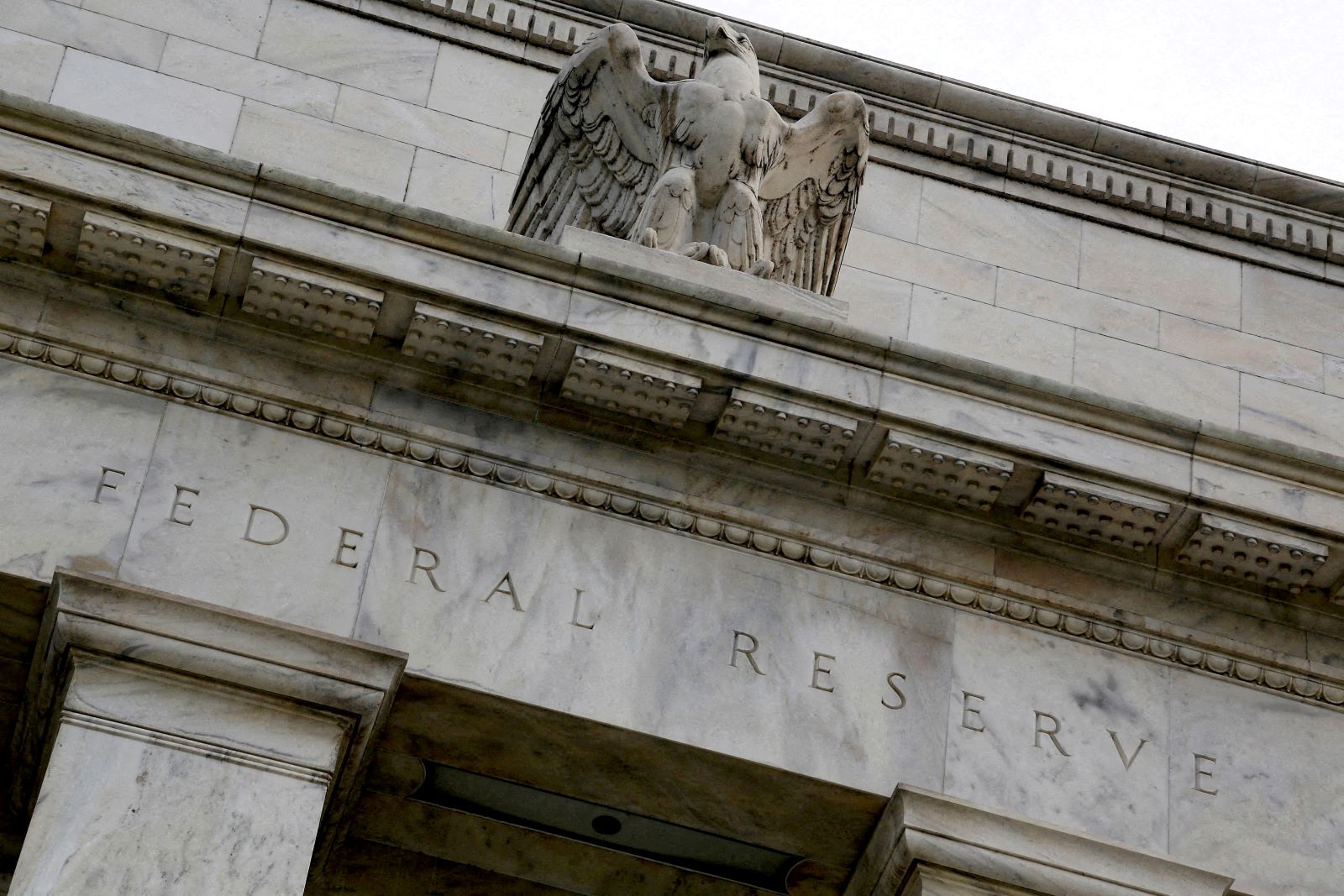
The Federal Reserve looks set to slow the tempo of its interest rate hikes for a second time at its next meeting after December data confirmed a slowdown in inflation, the Wall Street Journal reports. In recent statements, Fed officials have said they favor a 25-bps increase for the 31 Jan -1 Feb meeting — a more moderate rise that would allow them to gauge market responses as they determine when to bring the hikes to a halt. Officials agreed to slow the pace of rate hikes moving forward at their last monetary policy meeting in December, hiking interest rates by 50 bps to a target range of 4.25-4.5% after four consecutive 75-bps hikes aimed at curbing soaring inflation.
AND- The Qatar Investment Authority has doubled its stake in Credit Suisse to just under 7%, making it the struggling lender’s largest shareholder after Saudi National Bank, the Financial Times reports.
|
|
EGX30 |
16,183 |
+0.4% (YTD: +10.9%) |
|
|
USD (CBE) |
Buy 29.83 |
Sell 29.90 |
|
|
USD at CIB |
Buy 29.82 |
Sell 29.92 |
|
|
Interest rates CBE |
16.25% deposit |
17.25% lending |
|
|
Tadawul |
10,766 |
+0.4% (YTD: +2.7%) |
|
|
ADX |
10,159 |
-0.3% (YTD: -0.5%) |
|
|
DFM |
3,350 |
-0.1% (YTD: +0.4%) |
|
|
S&P 500 |
4,020 |
+1.2% (YTD: +4.7%) |
|
|
FTSE 100 |
7,785 |
+0.2% (YTD: +4.5%) |
|
|
Euro Stoxx 50 |
4,151 |
+0.8% (YTD: +9.4%) |
|
|
Brent crude |
USD 88.19 |
+0.6% |
|
|
Natural gas (Nymex) |
USD 3.44 |
-0.1% |
|
|
Gold |
USD 1,949.10 |
+0.2% |
|
|
BTC |
USD 22,909 |
+0.9% (YTD: +38.6%) |
THE CLOSING BELL-
The EGX30 rose 0.4% at yesterday’s close on turnover of EGP 2.4 bn (40.6% above the 90-day average). Local investors were net sellers. The index is up 10.9% YTD.
In the green: Cleopatra Hospitals (+4.8%), Heliopolis Housing and Development (+2.7%) and CIB (+2.4%).
In the red: Alexandria Containers and Cargo Handling (-5.2%), Juhayna (-3.3%) and TMG Holding (-1.8%).
Asian markets are in the green across the board in early trading this morning and futures suggest the fates will smile similarly on European and then US benchmarks when they open later on today, as investors continue to ride a wave of optimism over macroeconomic conditions.
DIPLOMACY

Prime Minister Moustafa Madbouly called for finalizing the World Bank’s development finance program with Egypt “as early as possible” in a meeting with bank representatives yesterday, according to a statement by the cabinet. The meeting discussed joint programs, including strengthening the country’s social safety net. The bank recently approved a USD 500 mn loan to expand the Takaful and Karama program in response to the economic crisis.
CIA in town: US Central Intelligence Agency Director William Burns met with President Abdel Fattah El Sisi and intelligence chief Abbas Kamel yesterday in Cairo, where they discussed ways to boost cooperation on the security and intelligence fronts, according to an Ittihadiya statement.
Regional CIT links: Egypt inked separate MoUs with the governments of Palestine and Somalia to cooperate in IT, telecoms, and postal technology. (Statement | Statement)
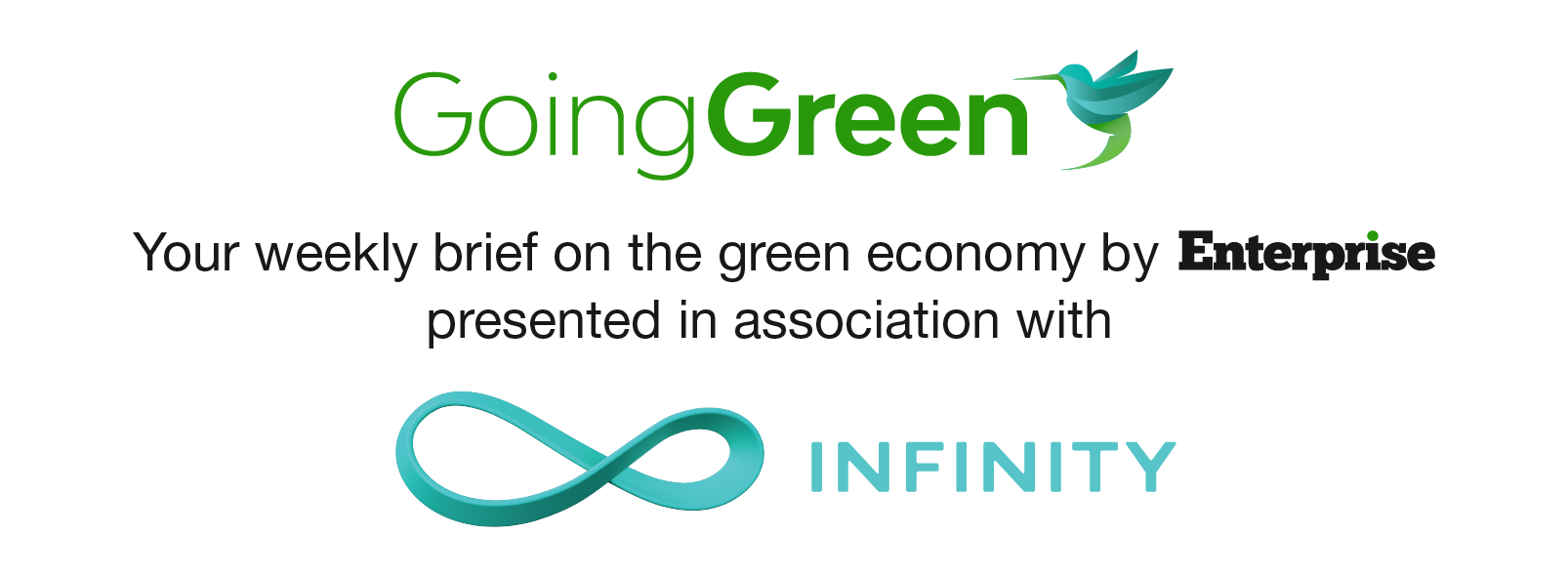
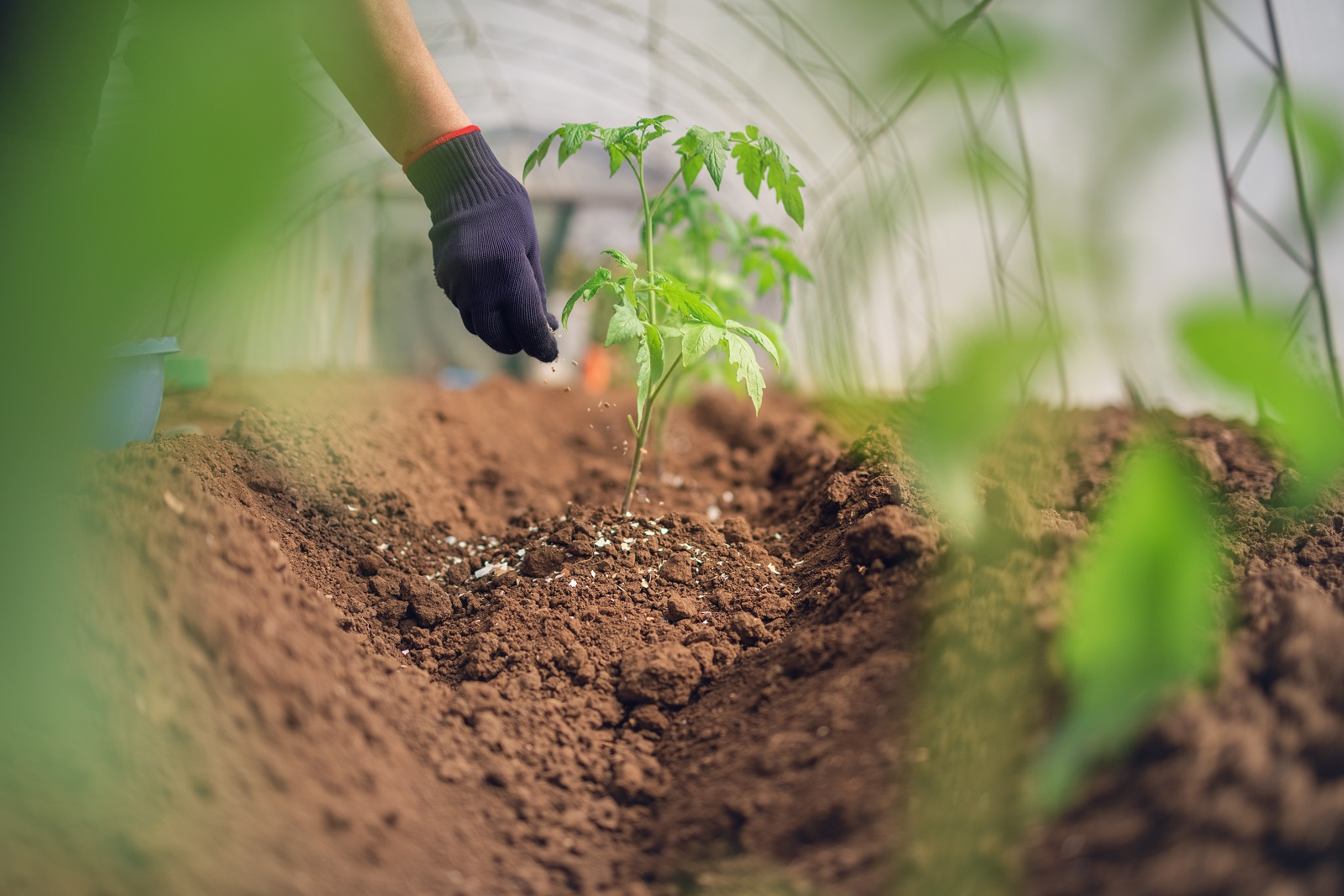
Egypt’s high-emissions industries are laying the groundwork ahead of the EU’s carbon tariff: The EU in December agreed to impose a first-of-its-kind carbon tariff on imports of iron and steel, cement, aluminum, fertilizers, hydrogen and electricity as part of a wider decarbonization strategy. The tariff will impact several Egyptian industries that export heavily to the EU if companies don’t act to decarbonize their products.
The CBAM: The so-called Carbon Border Adjustment Mechanism (CBAM) is designed to prevent European companies from shifting high-emission industrial production outside of the bloc and encourage companies in non-EU countries to decarbonize. Under the rules, from 2026 importers will be required to purchase certificates according to the associated carbon emissions, effectively introducing a tax on high-emission goods from non-European countries such as Egypt.
That’s not all: More products will be phased in after the CBAM launches. The EU will take a decision about whether to include polymers and organic chemicals in the mechanism when it launches in 2026. In addition, the EU is aiming by 2030 to include all goods covered by the EU Emissions Trading System, which include crude oil and petroleum products, inorganic basic chemicals, industrial gases, synthetic rubber and non-ferrous metals.
This could hurt: The EU is a key trading partner for Egypt and is the biggest overseas customer for the local fertilizer and metal industries. In 2021, 60% of Egypt's fertilizer exports headed across the Mediterranean, according to UN data, volumes which according to the Chemical and Fertilizers Export Council tripled y-o-y in the first 10 months of 2022 on the back of EU sanctions on Russia. Similarly, two-thirds of Egypt’s aluminum exports and more than 60% of its overseas sales of iron and steel went to Europe last year.
The financial impact: The fertilizer and chemical industries could lose 4% of export revenues due to the EU’s climate policies, including the CBAM, according to World Bank (pdf) projections. Meanwhile, revenues from Egypt-Europe electricity transmission expected to start later this decade will be 8.3% lower and oil exports will suffer a 4.3% loss.
What do exporters need to do?
#1- Get an emissions reporting system in place: As of 1 October 2023, the trial phase for the CBAM will require exporters to report their carbon emissions to importers. This will require producers to invest in ensuring their data is certified by an independent consultant and that their operations are “up to the level” of those certifications, Youssef Husseini, head of the chemicals team and VP of research at EFG Hermes, told Enterprise.
Some already do: Private local fertilizer producer Evergrow is also keeping in tune with the times, and has a reporting system in place that it executes with US-based environmental consulting firm Enviro-Max, Group CEO Ahmed Khalifa told us. As of last year EGX-listed companies — including Ezz Steel and Abu Qir Fertilizers — have been submitting quarterly ESG reports, though Egypt’s reporting regime is yet to align with European standards.
But reporting requirements are unclear: “A lot of the details about the implementation in terms of the emission reporting and verification are still unclear and we hope that it will not create a huge administrative burden for countries like Egypt where such systems have yet to develop,” Ahmed El Hoshy, CEO of OCI NV and Fertiglobe — an Adnoc / OCI joint venture and the world’s largest seaborne exporter of urea and ammonia combined — told us.
Action is needed on the regulatory front: “Developing a national registry system for monitoring, reporting and verification will be important to monitor and report success in reducing carbon content in Egyptian products,” Nancy Lozano-Gracia, lead economist at the World Bank, told Enterprise. Meanwhile, El Hoshy said that the ESG reporting systems in Egypt and in the EU need to be standardized with “proper certification.”
It’s going to take time for firms to get their ducks in a row: “I expect companies will need a period of 3-4 years to build that system,” Husseini said. That gives companies until 2026 or 2027 to put the system in place.
#2- Decarbonize, decarbonize, decarbonize: While Egypt accounts for less than 1% of global emissions, the carbon intensity of its economy as of 2019 — 884 grams CO2 per USD — was almost 56% higher (pdf) than global levels, making its industries more exposed to the impact of the tariff.
The steel industry is in a stronger position: The Egyptian steel industry may be less affected by the tariffs because local producers rely on electric arc furnaces rather than the more polluting blast furnaces used in other countries, sources from Ezz Steel told us. The company’s current emissions-per-ton of molten steel is around 1.22 tons of CO2, they said, which is 35% lower than the global average in 2020.
Private-sector fertilizer firms are acting: Fertiglobe just recently started commissioning a 100 MW green hydrogen plant that will feed into its ammonia facilities in Egypt, which will help the company have a “much lower carbon intensity vs. the regional benchmarks,” El Hoshy said. Evergrow also uses measures to reduce carbon emissions at their plants, including using CO2 turbines that use recycled emissions to generate power, Khalifa said.
Egypt’s renewables potential should give it a leg up: Egypt’s strong pipeline of renewables projects — it signed MoUs for 28 GW of new projects at COP27 alone — puts local industries in a stronger position to green their exports, Husseini said. “Companies in Egypt can create clean products at greater efficiency and lower cost than those in other countries,” he said.
Cleaner products = higher prices: When the tariff comes into effect, prices of cleaner products will likely increase to price in the additional cost, Husseini said. El Hoshy agrees, noting that the tariff will likely give “a built-in premium for the green ammonia” they produce at their facilities, he said.
“Decarbonizing what?” is the key question: Some anticipate companies to respond to the CBAM by greening only exports destined for the EU, rather than embarking on wholesale decarbonization. “The only effect CBAM would have is a resource shift whereby clean energy capacity in already under-resourced countries will be shifted for export production while industry aimed at local consumption and energy access will depend on dirty fuels,” senior advisor for climate diplomacy at the African Climate Foundation wrote on Twitter. Husseini agreed that in the absence of a local carbon tax, Egyptian producers will likely save their more polluting products for the local market.
Help is at hand: The European Bank for Reconstruction and Development (EBRD) is holding monthly meetings with representatives from the fertilizer sector to work on a low-carbon strategy that takes the tariff into account, Sherif El Gabaly, chairman of the chemicals division at the Federation of Egyptian Industries (FEI), told Enterprise.
But more will be needed: “Developing countries will need support [financial and capability-building] to level the playing field against the bns of USDs of incentives we are seeing in other markets like North America,” El Hoshy said.
Egypt is expected to join the chorus of opposition to the tariff: A 2022 study (pdf) put Egypt among the 10 countries most likely to oppose the tariff — possibly in the form of litigation at the World Trade Organization — due to its high carbon intensity and lower level of technological innovation. The Financial Times reported recently that several undisclosed developing nations have begun to negotiate with the European Commission for more flexibility, including potential waivers, though so far the EU has maintained that no exemptions will be on offer.
Your top green economy stories for the week:
- EIB talks at Davos: International Cooperation Minister Rania Al Mashat and EIB President Werner Hoyer discussed ways to continue supporting Egypt’s Nexus for Water, Food, and Energy (NWFE) climate program on the sidelines of the World Economic Forum last week.
- The UAE’s Masdar expresses more interest in Egypt’s infrastructure projects: This time around it’s the government’s multi-bn USD water desalination program.
- CFA participants announced: Nine green projects have been selected to participate in the Climate Finance Accelerator (CFA), a GBP 10 mn UK-funded initiative that aims to help sustainable Egyptian startups access international investment.
- Hurghada solar tender delayed by a month: The government has pushed a tender for a 20-MW solar plant in Hurghada until 22 February due to the recent exchange-rate volatility.
CALENDAR
JANUARY
January: Fuel pricing committee meets to decide quarterly fuel prices.
January: Infinity + Africa Finance Corporation to close acquisition of Lekela Power.
25 January (Wednesday): 25 January revolution anniversary / Police Day.
26 January-6 February (Thursday-Monday): Cairo International Book Fair, Egypt International Exhibition Center.
26 January (Thursday): President El Sisi will visit India as “chief guest” at celebrations to mark the 74th anniversary of Indian independence.
26 January (Thursday): National holiday in observance of 25 January revolution anniversary / Police Day.
30 January-1 February (Monday-Wednesday): CI Capital’s Annual MENA Investor Conference 2023, Cairo, Egypt.
31 January (Tuesday): The IMF will release its World Economic Outlook Update.
31 January (Tuesday): EBRD + EU + GCF will lay out their strategic plans to boost green finance in Egypt.
31 January-1 February (Tuesday-Wednesday): Federal Reserve interest rate meeting.
FEBRUARY
1 February (Wednesday): Capricorn Energy will hold a vote on its merger with Israel’s NewMed.
2 February (Thursday): Central Bank of Egypt’s Monetary Policy Committee meeting.
5 February (Sunday): The Senate reconvenes.
11 February (Saturday): Second semester of 2022-2023 academic year begins for public universities.
13-15 February (Monday-Wednesday): The Egypt Petroleum Show (Egyps), Egypt International Exhibition Center, Cairo.
23-27 February (Thursday-Monday): Annual Business Women of Egypt’s Women for Success conference.
MARCH
March: 4Q2022 earnings season.
23 March (Wednesday): First day of Ramadan (TBC). Maghreb will be at 6:08pm CLT.
30 March (Thursday): Central Bank of Egypt’s Monetary Policy Committee meeting.
APRIL
April: GAFI to launch the country’s first integrated electronic platform to facilitate setting up a business.
1 April (Saturday): Deadline for banks to establish sustainability units.
10-16 April (Monday-Sunday): IMF / World Bank Spring Meetings, Marrakesh, Morocco.
16 April (Sunday): Coptic Easter
17 April (Monday): Sham El Nessim.
22 April (Saturday): Eid El Fitr (TBC).
25 April (Tuesday): Sinai Liberation Day.
27 April (Thursday): National holiday in observance of Sinai Liberation Day (TBC).
30 April (Sunday): Deadline for self-employed to register for e-invoicing.
30 April (Sunday): End of Mediterranean, Nile Delta oil + gas exploration tender.
Late April – 15 May: 1Q2023 earnings season.
MAY
1 May (Monday): Labor Day.
4 May (Thursday): National holiday in observance of Labor Day (TBC).
4 May (Thursday): IEF-IGU Ministerial Gas Forum, Cairo.
18 May (Thursday): Central Bank of Egypt’s Monetary Policy Committee meeting.
22-26 May (Monday-Friday): Egypt will host the African Development Bank (AfDB) annual meetings in Sharm El Sheikh.
JUNE
10 June (Saturday): Thanaweya Amma examinations begin.
19-21 June (Monday-Wednesday): Egypt Infrastructure and Water Expo debuts at the Egypt International Exhibition Center.
22 June (Thursday): Central Bank of Egypt’s Monetary Policy Committee meeting.
28 June-2 July (Wednesday-Sunday): Eid El Adha (TBC).
30 June (Friday): June 30 Revolution Day.
JULY
18 July (Tuesday): Islamic New Year.
20 July (Thursday): National holiday in observance of Islamic New Year (TBC).
23 July (Sunday): Revolution Day.
27 July (Thursday): National holiday in observance of Revolution Day.
Late July-14 August: 2Q2023 earnings season.
AUGUST
3 August (Thursday): Central Bank of Egypt’s Monetary Policy Committee meeting.
SEPTEMBER
21 September (Thursday): Central Bank of Egypt’s Monetary Policy Committee meeting.
26 September (Tuesday): Prophet Muhammad’s birthday (TBC).
28 September (Thursday): National holiday in observance of Prophet Muhammad’s birthday (TBC).
OCTOBER
6 October (Friday): Armed Forces Day.
Late October-14 November: 3Q2023 earnings season.
NOVEMBER
2 November (Thursday): Central Bank of Egypt’s Monetary Policy Committee meeting.
DECEMBER
21 December (Thursday): Central Bank of Egypt’s Monetary Policy Committee meeting.
EVENTS WITH NO SET DATE
2023: The inauguration of the Grand Egyptian Museum.
2023: Egypt will host the Asian Infrastructure Investment Bank’s Annual Meeting of the Board of Governors in 2023.
1Q 2023: Adnoc Distribution’s acquisition of 50% of TotalEnergies Egypt to close.
1Q 2023: Egypt + Qatar to launch joint business forum.
1Q 2023: FRA to introduce new rules for short selling.
1Q 2023: Internal trade database to launch.
Enterprise is a daily publication of Enterprise Ventures LLC, an Egyptian limited liability company (commercial register 83594), and a subsidiary of Inktank Communications. Summaries are intended for guidance only and are provided on an as-is basis; kindly refer to the source article in its original language prior to undertaking any action. Neither Enterprise Ventures nor its staff assume any responsibility or liability for the accuracy of the information contained in this publication, whether in the form of summaries or analysis. © 2022 Enterprise Ventures LLC.
Enterprise is available without charge thanks to the generous support of HSBC Egypt (tax ID: 204-901-715), the leading corporate and retail lender in Egypt; EFG Hermes (tax ID: 200-178-385), the leading financial services corporation in frontier emerging markets; SODIC (tax ID: 212-168-002), a leading Egyptian real estate developer; SomaBay (tax ID: 204-903-300), our Red Sea holiday partner; Infinity (tax ID: 474-939-359), the ultimate way to power cities, industries, and homes directly from nature right here in Egypt; CIRA (tax ID: 200-069-608), the leading providers of K-12 and higher level education in Egypt; Orascom Construction (tax ID: 229-988-806), the leading construction and engineering company building infrastructure in Egypt and abroad; Moharram & Partners (tax ID: 616-112-459), the leading public policy and government affairs partner; Palm Hills Developments (tax ID: 432-737-014), a leading developer of commercial and residential properties; Mashreq (tax ID: 204-898-862), the MENA region’s leading homegrown personal and digital bank; Industrial Development Group (IDG) (tax ID:266-965-253), the leading builder of industrial parks in Egypt; Hassan Allam Properties (tax ID: 553-096-567), one of Egypt’s most prominent and leading builders; and Saleh, Barsoum & Abdel Aziz (tax ID: 220-002-827), the leading audit, tax and accounting firm in Egypt.

